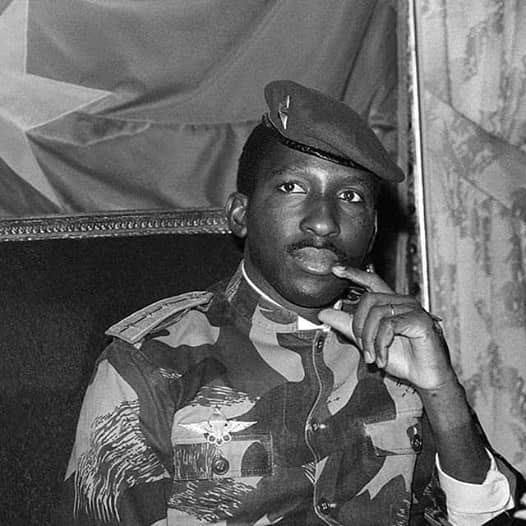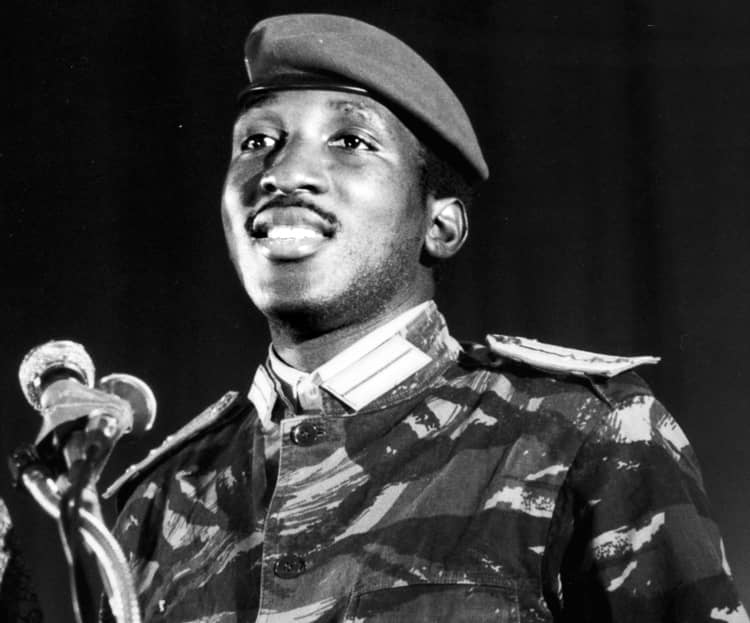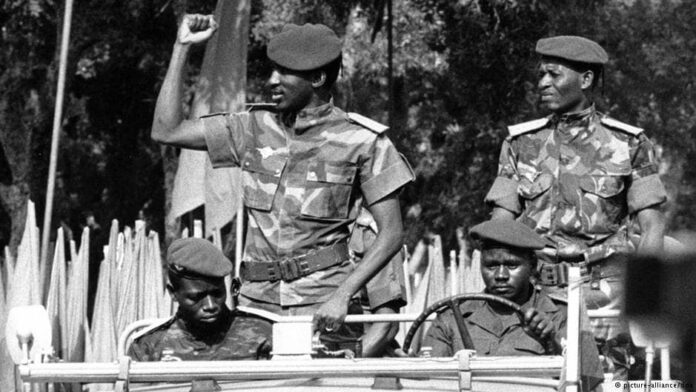Nearly four decades after his assassination, Thomas Sankara’s name still resonates across Africa and beyond.
Dubbed “Africa’s Che Guevara,” Sankara was more than just a military officer turned president he was a visionary who dared to challenge the status quo of neocolonialism, corruption, and inequality.
Born on December 21, 1949, in the town of Yako in what was then French Upper Volta, Sankara’s rise was as rapid as it was unconventional. Trained as a soldier, he brought Marxist and pan-Africanist ideals to the forefront of national discourse.
In 1983, at the age of 33, he came to power through a popular-backed military coup and quickly set about transforming the newly renamed Burkina Faso meaning “Land of Incorruptible People.”

A Leader Unlike Any Other
Sankara’s leadership was marked by a fierce commitment to self-reliance. Rejecting foreign aid, he argued that “he who feeds you, controls you.” Under his watch, Burkina Faso launched massive vaccination campaigns that immunized millions against diseases like measles and meningitis. His government prioritized literacy, built schools, redistributed land from feudal landlords to peasants, and planted over 10 million trees to combat desertification.
But perhaps his boldest moves came in his unapologetic support for women’s rights. He outlawed forced marriages, promoted female participation in government, and encouraged women to join the military a rare stance for an African leader in the 1980s.
A Revolution Cut Short
Sankara’s radical policies and blunt rhetoric made him enemies both at home and abroad. On October 15, 1987, just four years into his presidency, Sankara was assassinated in a coup led by his close friend and confidant, Blaise Compaoré. The nation’s revolutionary path was abruptly halted.
Compaoré would go on to rule Burkina Faso for 27 years, during which time Sankara’s legacy was systematically erased his speeches censored, his memory buried. But the people did not forget.
In recent years, a new generation of Africans has resurrected his ideals. Statues of Sankara now stand in Ouagadougou, students quote his speeches on social media and calls for justice culminated in the historic 2021 trial that found Compaoré guilty in absentia for his role in the assassination.

Legacy of a Visionary
Thomas Sankara’s life was brief, but his impact was profound. He redefined what African leadership could look like uncompromising, people-centered, and principled.
“He lived modestly and died with his ideals intact,” says Issa Diallo, a historian at the University of Ouagadougou. “In a world full of politicians, Sankara was a true statesman.”
As Africa continues to grapple with issues of governance, debt, and dependency, Sankara’s legacy remains a beacon a reminder that revolutionary change is possible, and that one man’s dream can stir a continent.


